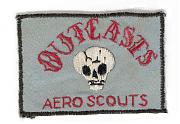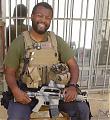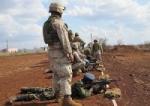What then should he have recommended to the Congress and the president? That is, if the commitment of a modest increment of additional forces —the 30,000 troops comprising the surge, now employed in accordance with sound counterinsurgency doctrine —has begun to turn things around, then what should the senior field commander be asking for next?
A single word suffices to answer that question: more. More time. More money. And above all, more troops.
It is one of the oldest principles of generalship: when you find an opportunity, exploit it. Where you gain success, reinforce it. When you have your opponent at a disadvantage, pile on. In a letter to the soldiers serving under his command, released just prior to the congressional hearings, Petraeus asserted that coalition forces had “achieved tactical momentum and wrestled the initiative from our enemies.” Does that reflect his actual view of the situation? If so, then surely the imperative of the moment is to redouble the current level of effort so as to preserve that initiative and to deny the enemy the slightest chance to adjust, adapt, or reconstitute.
Yet Petraeus has chosen to do just the opposite. Based on two or three months of (ostensibly) positive indicators, he has advised the president to ease the pressure, withdrawing the increment of troops that had (purportedly) enabled the coalition to seize the initiative in the first place.
This defies logic. It’s as if two weeks into the Wilderness Campaign, Grant had counseled Lincoln to reduce the size of the Army of the Potomac. Or as if once Allied forces had established the beachhead at Normandy, Eisenhower had started rotating divisions back stateside to ease the strain on the U.S. Army.







 ) "what is in someone who falls on a grenade to save his buddies?" Yes, it's honor and bravery, but IMO it goes beyond that. There's a spiritual dimension to it. To paraphrase Jesus: "There is no greater love than a man who lays down his life for his friends"
) "what is in someone who falls on a grenade to save his buddies?" Yes, it's honor and bravery, but IMO it goes beyond that. There's a spiritual dimension to it. To paraphrase Jesus: "There is no greater love than a man who lays down his life for his friends"




Bookmarks